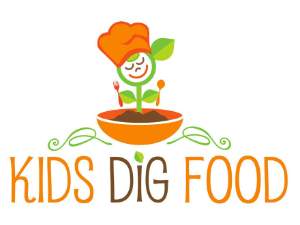Every week I see more and more children referred by doctors, health professionals and parents with concern about their child’s weight. When I first started my private practice a few years ago, I drew away from seeing these kids & families, mainly because I felt I’d be doing more harm than good. There was no way I wanted to put children on a “diet”. I’d been a chubby kid, grew up amongst a family of women preoccupied with diets and weight loss and I knew how damaging that could be. So, in an effort to hold true to the Hippocratic Oath of “First do no harm”, I decided the best course of action for me at that time was not to see them at all. Extreme, maybe. But I knew in my heart that the relentlessly reported obesity “epidemic” in the media was way more complicated than families eating too much junk food and over-feeding their kids. I was still looking for the missing piece of the puzzle.
How do I support families with weight concern?
My clinical experience over the next few years working with fussy eaters and their families led me full circle. I soon began to realise that assisting parents to establish positive feeding relationships with their children is the key to growing competent eaters, and for the future health of our kids no matter what the child’s weight. It is as important for kids with weight concerns as it is for fussy eaters and every child in-between.
The foundation: Division of Responsibility in Feeding
Central to the work I do with all families is to create a solid foundation on which to build positive and sustainable eating behaviours & a positive relationship with food. This is at the heart of the Division of Responsibility in Feeding which was pioneered by Ellyn Satter, US Dietitian, family therapist and researcher.
Ellyn Satter’s Division of Responsibility in Feeding (sDOR) sets out clearly what parents and children need to do in the feeding relationship (what their “jobs” are)–parents are responsible for the what (deciding what’s on offer), when & where of feeding and children are responsible for the how much/whether of eating. Children do best with food and eating and grow to get the right body for them when they’re given a balance of structure and autonomy with food and meal times.
A great resource for parents struggling with a child with weight concern is Ellyn Satter’s book, Your Child’s Weight – Helping without Harming.
Why NOT focussing on weight is important
The belief that weight is the ideal measure of better health is flawed. Kids living in small bodies aren’t necessarily healthy and kids living in bigger bodies aren’t always unhealthy. Why then is weight the first thing that we seek to change? Focussing on weight and achieving weight loss teaches our kids that the most important measure of health is a number on the scales, and to feel bad about that if they don’t fit society’s definition of what “healthy” looks like. Worse still, the more we restrict kids’ food intake in an effort to make them lose weight or not get so big, the more they find ways to eat more.
It has been well established that diets and dieting behaviours such as food restriction, energy restriction and excessive exercise don’t achieve the desired outcome of losing weight and keeping it off in the long term. Diets with the intent of weight loss for children are not only inappropriate when kids are still growing and developing, they also greatly increase the risk of disordered eating patterns. They can even contribute to the development of eating disorders including anorexia nervosa, bulimia nervosa & binge eating disorder. At best, children who experience dieting and restriction end up feeling flawed and deeply dissatisfied with their bodies.
The evidence is clear that diets for weight loss simply don’t work long term. The NHMRC clinical practice guidelines for the management of overweight and obesity confirm that “Regardless of the degree of initial weight loss, most weight is regained within a 2-year period and by 5 years the majority of people are at their pre-intervention body weight.” (refer p 160 of this document)
People & families who diet are more likely to have poorer mental and physical health, experience more body dissatisfaction and are at risk of experiencing disordered eating. This is particularly true of children who come from families with a long history of weight concern–Mum and or Dad may have a lifelong “battle” with weight, may have an unhealthy relationship with food or may have experienced or be experiencing an eating disorder themselves.
There is an enlightening study taken from NHANES data (National Health and Nutrition Examination Survey from the USA) that showed a reduction in chronic disease parameters with addition of health behaviours independent of weight. The data shows that weight reduction alone isn’t a good predictor of health improvements, but addition of health behaviours is.
For more information, check out this paper by Linda Bacon, published in 2011 in the well-respected Nutrition Journal.
How does the Division of Responsibility in Feeding help with managing weight concern?
Focussing on the sDOR allows families to take a very matter-of-fact, sensible, weight-neutral approach to feeding and eating. When implemented correctly, it allows children to grow to get the bodies that nature intended. When working with families, the most valuable skill I can give my clients’ parents are the tools to feed their children faithfully with a balance of structure and autonomy.
I love using this approach with families because it empowers parents and caregivers to play an active part in the feeding relationship and supports children to be independent and confident eaters. In doing so, it preserves a child’s sense of well-being & body image and helps them to build a healthy relationship with food for life.
People who become competent eaters are more likely to achieve weight stability and maintain a body weight and size that is right for them. They often show improvements in chronic disease markers including: decreasing blood pressure, decreasing LDL cholesterol, increasing physical activity, increasing body satisfaction, improving dietary patterns, reducing stress and in most cases stabilising weight.
The problem with prescribing diets aren’t good for kids (or adults)
“Dieting” is any pattern of eating that restricts, limits or unnecessarily eliminates any food or food group with the intention of changing the body.
We need to eat every day, and if eating isn’t enjoyable, then it isn’t sustainable. Diets may seem to “work” initially, but after a while become too difficult or boring for most humans to maintain. When we inevitably fail to “stick” to a diet plan we berate ourselves for “not having enough willpower“. We lose trust in our body’s natural ability to decide what and how much to eat. We then go on the search for the next new diet that will be the answer. And so the on-off, restriction-binge, good-guilt merry-go-round of diet cycling begins.
And what then of health? Diet cycling itself is incredibly damaging to our long-term health and well-being. The answer simply isn’t found in a diet plan. It is found within ourselves.
Diets reinforce to kids that:
- Their bodies aren’t good enough as they are
- Their body is wrong / ugly / broken
- They can’t trust themselves with food
We teach kids to diet by:
- Modelling or imposing restrictive eating behaviours
- Fat-talk and diet-talk
- Letting them watch us “going on” and “falling off” diets
- Making judgemental comments about ours, theirs or others’ bodies
- Labelling food as good & bad, healthy & unhealthy
When children are taught to diet, either overtly or covertly, this can have disastrous consequences on their future relationship with food and increase the risk of further unhealthy behaviours.
How traditional dieting and a weight-neutral approach differ:
| Traditional Dieting | Weight-neutral Approach |
|---|---|
| Restricting calories and “fattening” foods | Flexible |
| Perfectionism | All foods welcome |
| Good and bad foods | Food is pleasurable |
| Scales, weighing and weight loss | No weighing or kilojoule counting |
| Causes feelings of guilt | Focus on health and well-being |
| Hunger | Nourishing |
| Body dissatisfaction | Forgiving |
| Shame | Intuitive, competent & confident eating |
If you or your child feels badly about their body, that needs to change. The path to health is to find ways to first be at peace with the body you or they have and then work on feeding you & your kids faithfully. We will help you support your kids to grow to get the body that is right for them.
Keep asking questions and above all, keep loving your child for the amazing human they are.
Eat happy!
Deb Blakley
Accredited Practising Dietitian & Director



Recent Comments